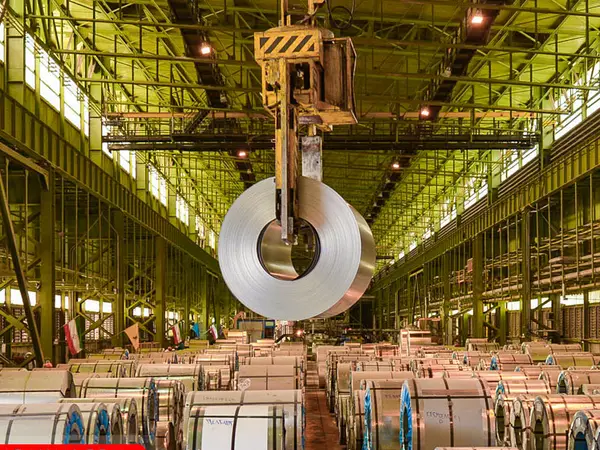The Tehran Stock Exchange (TSE) has suspended Mobarakeh Steel Company following a scathing parliament report about an alleged $3 billion corruption case.
Mahmoud Goudarzi, chief executive of the Tehran Stock Exchange (TSE), said Saturday that trading of the company’s stocks has been suspended and will not resume until further information on the company's financial affairs become clear. With an estimated value of nearly 2,940 trillion rials (around $10 billion in current exchange rate), Mobarakeh Steel is the second largest company in TSE.
The report which was released Thursday has revealed massive corruption and mismanagement in Mobarakeh Steel Company, the largest steel producer in the Middle East and Northern Africa, which is located near the city of Mobarakeh, Esfahan Province. According to the parliament's report, the company's revenues amounted to nearly 15% of the country’s budget last year.
The over 250-page report says Mobarakeh Steel Company paid astronomical sums of money to various government entities including the Revolutionary Guard (IRGC), ministry of intelligence, police, state broadcaster (IRIB), Friday prayer imam’s offices, religious seminaries, and bribed others such as certain media outlets, individuals, and social media influencers.
The company which has a share of around 1% in Iran's GDP employes around 350,000 people directly and indirectly and feeds over 2,800 other large and small enterprises across the country.
Mobarakeh Steel is nominally private, but it is a quasi-governmental company with most of its shares owned by the Mines and Mineral Industries Development and Renovation Organization, various private and public joint stock companies, and quasi-state banks. The company's management is appointed by the government.
“Semi-Prublic” (Khosoulati in Persian) is a term coined by fusing the Persian words for private and public, and refers to companies that are sold to the private sector on the surface, but are owned by the government, IRGC entities, or entities under the control of the supreme Leader in reality.
Iran scored 25 points out of 100 on the 2021 Corruption Perceptions Index (CPI) reported by Transparency International, five points down since 2017. Iran's new ranking put it among very corrupt countries including Guatemala, Guinea, and Tajikistan (26), Pakistan, Miyanmar (28), and Laos and Paraguay (30). The CPI ranks countries and territories based on how corrupt their public sector is perceived to be.
Parliament’s investigative report, covering the period 2018-2021, accuses officials of the administration of former President Hassan Rouhani, including vice-president Es’haq Jahangiri, former Vice-President Mohammad Nahavandian, and others for using their influence in appointing top officials of the company including its board members.
It is worth noting that the current parliament is dominated by hardliners who have repeatedly called for prosecuting members of the former ‘reformist’ government.
The report also claims that during the previous administration, the company granted contracts to family members of government officials and influential politicians.
Tweeting with “systematic corruption” hashtag, Reformist politician and commentator Abbas Abdi said this means the company’s total financial violations was equal to 10 million rials per every Iranian citizen plus a few billions paid to the IRIB state broadcaster (IRIB) and hardliner news agencies to cover up.
In an editorial Saturday, the conservative Resalat newspaper argued that the report isn't the finalstatement and individuals can only be considered guilty of corruption after all the stages of legal prosecution have been completed before which revealing their names and even alleged corruption figures will only “impair the mental sanity of the accused and the people.”
